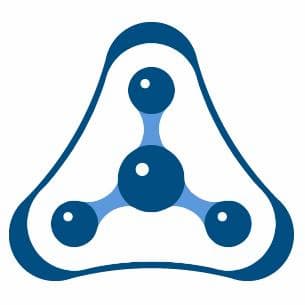Fast, Accurate, Robust Quantum Chemistry
Q-Chem provides a vast library of state-of-the-art methods for modeling molecular systems, enabling quick, accurate predictions of electronic and molecular structure, reactivities, properties, spectra, and more.
Recent Publication Highlights
In this paper, authors study the effects of hydrostatic pressure on magnetic spin parameters of the nitroxide radical, using Q-Chem to optimize molecules under pressure and predict magnetic properties. https://t.co/PQ0BgLXgxM
— Q-Chem (@QChemSoftware) June 26, 2025
Request a free trial: https://t.co/DKMgNYqOMT pic.twitter.com/7t2OVCqzy1
HetPCM (new in Q-Chem 6.3!) allows parts of QM cluster protein models to be solvent-exposed, while other parts are buried in hydrophobic regions. In this paper, authors use it to predict solvation energies and pKa: https://t.co/YYxjyfBNKT
— Q-Chem (@QChemSoftware) May 30, 2025
Try Q-Chem 6.3: https://t.co/1xfgbi0sOu pic.twitter.com/7zyedrjiNy
These researchers introduce a new model (PV) to simulate molecules under pressure, allowing them to study pressure-induced structural and spectroscopic changes. Their method is now available in Q-Chem 6.3! https://t.co/u57PsrszVR
— Q-Chem (@QChemSoftware) June 25, 2025
Request a free trial: https://t.co/1xfgbi0sOu pic.twitter.com/MjiDFsJMav
Upcoming Q-Chem User Workshop: Pittsburgh | |

| Join us in Pittsburgh for our next Q-Chem User Workshop, happening on July 23 from 9:00 AM—1:00 PM. Register here! This Q-Chem User Workshop will feature talks from Q-Chem team members, as well as hands-on demonstrations and exercises. Explore new features, hear from experts, and learn useful strategies for running fast, accurate ab initio quantum chemistry… Read More |
Upcoming Webinar: Nuclear–Electronic Orbital ab initio Wave Function Methods in Q-Chem | |

| Don't miss our next Q-Chem webinar, Nuclear–Electronic Orbital ab initio Wave Function Methods in Q-Chem, happening on July 17th at 10AM PDT. Register here! Nuclear quantum effects such as zero-point energy and hydrogen tunneling play important roles in chemical and biological processes. The nuclear–electronic orbital (NEO) approach… Read More |
Q-Chem Developer Thomas Jagau Receives CMOA Award | |

| Congratulations to Q-Chem developer Prof. Thomas Jagau on receiving the Promising Scientist Prize of Centre de Mechanique Ondulatoire Appliquée at the QSCP-XXVI International Workshop in Paris, France! Prof. Jagau is recognized for his ongoing contributions to the field of quantum chemistry, particularly his work with metastable states and development of novel methods for studying non-Hermitian quantum chemistry. Most of his… Read More |
Justin Talbot — 2025 Besley Award Winner | |

| The winner of the 2025 Nick Besley Award is Prof. Justin Talbot! The award committee is delighted to recognize him for his excellent contributions towards the computational vibrational spectroscopy of hydrated ions and the development of efficient methods for nonadiabatic dynamics simulations in Q-Chem. Prof. Talbot earned his BS in physics and applied mathematics and his PhD in physical chemistry at the University of Utah, where he worked with Prof. Ryan Steele in applications and… Read More |
Upcoming Webinar: Nuclear–Electronic Orbital ab initio Wave Function Methods in Q-Chem |

|
Don't miss our next Q-Chem webinar, Nuclear–Electronic Orbital ab initio Wave Function Methods in Q-Chem, happening on July 17th at 10AM PDT.… Read More |
Q-Chem Developer Thomas Jagau Receives CMOA Award |

|
Congratulations to Q-Chem developer Prof. Thomas Jagau on receiving the Promising Scientist Prize of Centre de Mechanique Ondulatoire Appliquée at the… Read More |
Justin Talbot — 2025 Besley Award Winner |

|
The winner of the 2025 Nick Besley Award is Prof. Justin Talbot! The award committee is delighted to recognize him for his excellent contributions towards the computational vibrational… Read More |




